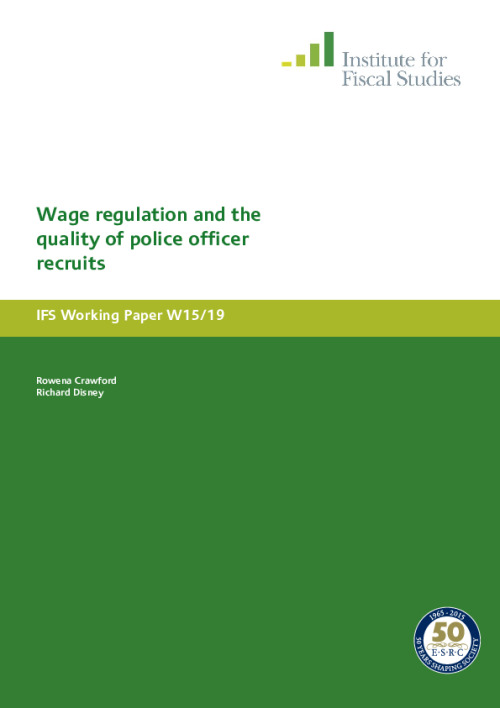The paper analyses the impact of centrally regulated pay on the quality of applicants to be police officers in England and Wales using a unique dataset of individual test scores from the national assessment that is required of all applicants. It provides empirical evidence of two distinct channels through which centrally regulated pay induces variation in the quality of applicants. First, national wage setting implies that relative wages between the police and other occupations vary spatially. We show that higher outside wages are associated with lower quality applicants, using several spatially-varying measures of outside wages. Second, nationally-set wages cannot adjust to reflect spatial variation in the disamenity of an occupation. We demonstrate that a greater disamenity of policing (as measured primarily by area differences in crime rates and in the proportion of crime that is violent) is also associated with lower quality police applicants.










